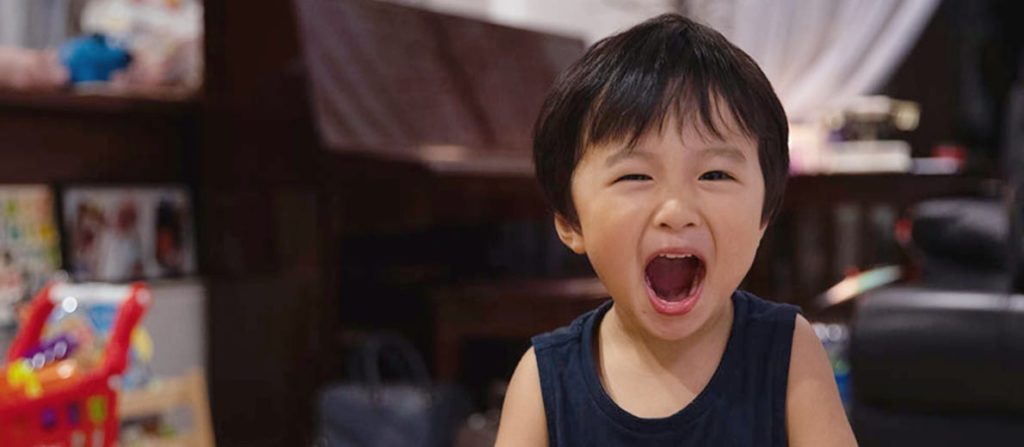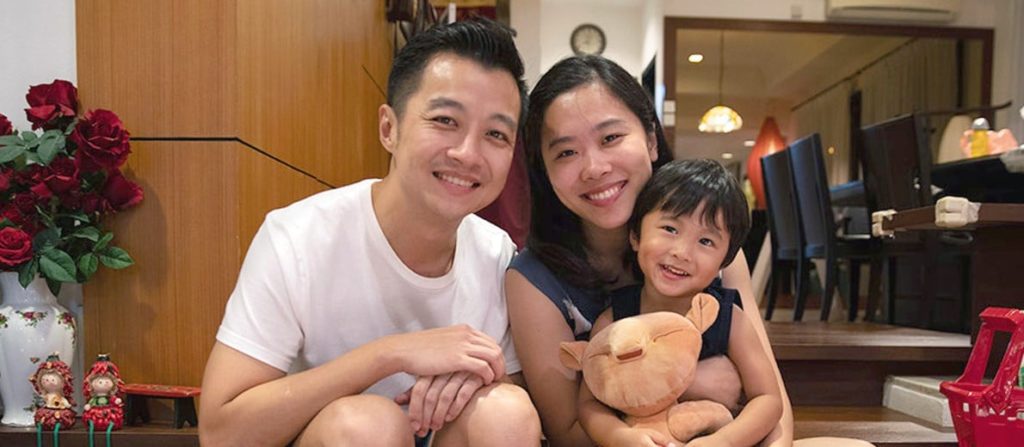When a 3-Year-Old With Rare Disease Gets Hope to Live
05 Jun 2020Christopher Toi is only three, but suffers from a rare liver disease that afflicts fewer than 50 in this world. To survive, he needs a daily dose of medicine that currently costs at least S$7,000 a month, posing a financial burden and stress on his family. He now has hope with the Rare Disease Fund.

Small scratches and cuts may be common for babies exploring the world around them but not for three-year-old Christopher Toi.
As an infant, Christopher Toi’s wounds bled for hours. A cut that would typically take 20 minutes or less to stop bleeding for most people could take 36 hours or even longer for him.
At six months old, his eyes and skin were still slightly jaundiced and he had trouble gaining weight, which left him on the bottom of the growth chart. Worried, his parents brought him to the hospital.
He was admitted to the hospital for about a week, and went through many medical tests. It took two months for genetic results from the United States to come back and the doctors could finally explain to his parents the cause for his symptoms. He suffers from bile acid synthesis disorder – a disease so rare that he is the first known case in Singapore. Globally, fewer than 50 people reportedly have it.
If untreated, Christopher’s liver will become irritated and enlarged, which results in scarring and liver damage. If a liver transplant is not received at this stage, death would occur as a result of complications of liver failure.
“All the doctors have been unanimous in their views that a transplant should be done only when no other options are available. So if you have an option of medication that can successfully treat the condition, you must take it.”
In Christopher’s case, that life-saving drug was cholic acid. But his parents were shocked to hear that it could cost them at least US$20,000 (S$26,700) a month. This amount would work out to tens of millions of dollars throughout his life, with the dosage – and cost – increasing as he grows.
Following intense research over several months, his family found a cheaper alternative of the same drug. But it would still cost S$7,000 a month.
The price is high because it is classified as an orphan drug, which the pharmaceutical industry has little interest in developing as such treatments are intended for a small number of patients.
From Desperation to Hope
Last year, they were offered hope – hope for a lifetime, as the tagline for a new fund which supports patients with rare diseases goes.
The Rare Disease Fund (RDF) was established in July 2019 by the Ministry of Health (MOH) and SingHealth Fund, to assist patients with rare diseases struggling with the high cost of their medicines required for them to stay alive. RDF combines community donations and government-matched contributions.
For every dollar of public donation, the government will match S$3. The Balaji Sadasivan Endowment, managed by Temasek Foundation, is one of the contributors together with Temasek and T-Touch, a volunteer initiative driven by Temasek staff.

Christopher (with his parents) was one of the first two beneficiaries of RDF. Photo: Temasek Foundation
“The moment I got the news that RDF was approved, I wept straight away because it was just a feeling of relief, elation, and answered prayers. We did not feel so alone.”
Rare diseases are defined as those affecting fewer than one in 2,000 people. They typically stem from inborn genetic disorders and are often diagnosed in childhood. For a number of rare conditions, there are medicines which can replace patients’ missing enzymes or biochemical, substantially extending their lifespans and improving their quality of life.
An initial list of six life-saving medicines which treat four rare diseases have been identified for funding under RDF. More medicines will be added to the list as more funds are raised.
Christopher was one of the first two beneficiaries of RDF. The fund, which his parents apply for on a yearly basis, covers a larger portion of his medicine costs as compared to Medifund Junior, which had previously subsidised part of his medical fees.
While Christopher’s parents sometimes worry about how he would react when he is old enough to realise the full implications of his condition, their faith, the support of family and the wise words of a doctor they met early on in their journey helps to keep them going. The doctor had advised them to take things one step at a time.
“He told us ‘You live in blocks of five years, do not worry’,” said Christopher’s family.
This story was first published on www.temasek.com.sg.